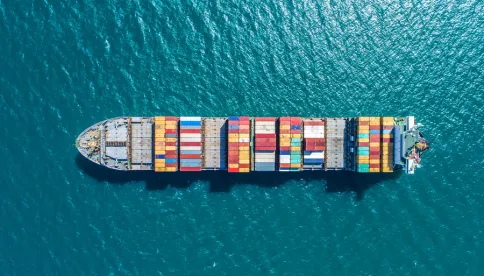On April 22, 2019, the US Supreme Court granted certiorari in CITGO Asphalt Ref. Co. v. Frescati Shipping Co., Docket No. 18-565, to resolve the question of whether a safe berth clause in a voyage charter party guarantees a ship’s safety or merely imposes a duty of due diligence. Frescati Shipping arises out of the US Court of Appeals for the Third Circuit, where the rule with respect to safe berth clauses is strict liability. In re Frescati Shipping Co., 886 F.3d 291 (3d Cir. 2018). That case conflicts with Fifth Circuit precedent that states that a “safe berth clause imposes upon the charterer a duty of due diligence to select a safe berth.” Orduna S.A. v. Zen-Noh Grain Corp., 913 F.2d 1149, 1157 (5th Cir. 1990). The Supreme Court’s decision will likely have implications for both charterers and terminal operators alike because safe berth provisions are often found in time and voyage charters, as well as terminal agreements.
Frescati Shipping involved an oil spill in the Delaware River that occurred on November 26, 2004. Approximately 900 feet from its intended berth, the M/T ATHOS I, a single-hulled oil tanker, struck an abandoned anchor on the bottom of the Delaware River, causing a spill of approximately 264,000 gallons of crude oil. The cleanup cost was $143 million. The ATHOS I was owned by Frescati Shipping Company, Ltd., and managed by Tsakos Shipping & Trading, S.A. CITGO sub-chartered the vessel from the tanker pool to deliver crude oil to its berth in Paulsboro, New Jersey. Frescati paid to clean up the spill and was reimbursed $88 million by the United States. Frescati and the United States filed suit to recover these costs from CITGO.
The voyage charter party included a safe berth warranty that the ATHOS I would be directed to a location that “she may safely get (always afloat).” CITGO provided a warranty that the ATHOS I would have safe berth in Paulsboro so long as the vessel arrived at a draft of 37 feet or less. Although the parties disputed the ATHOS I’s draft when it approached CITGO’s berth, the district court found that the ATHOS I’s draft was 36' 7" at the time of the incident. On appeal, the Third Circuit held that “the safe berth warranty is an express assurance made without regard to the amount of diligence taken by the charterer.”
By contrast, a Fifth Circuit case from 1990 held that a safe berth warranty in a charter party only imposes a duty of due diligence on the charterer to select a safe berth. Orduna S.A. v. Zen-Noh Grain Corp., 913 F.2d 1149, 1157 (5th Cir. 1990). There, a steel loading arm fell from a grain elevator onto the deck of the M/V TREBIZOND, which was loading cargo in the berth below the grain elevator. The ship was damaged and her departure was delayed. Orduna S.A. and Transglobal Maritime Corporation, the vessel owners, sued the vessel’s voyage charterer, among other entities associated with the grain elevator and its manufacturer.
The district court found the voyage charterer liable, but granted it full indemnification from the owner and operator of the grain elevator and the design engineering firm associated with it. On appeal, the voyage charterer argued that it should not be liable to the vessel owner based solely on the safe berth clause in the charter party. The standard safe berth clause provided that the charterers should designate “safe discharging berths [the] vessel being always afloat.”
The voyage charterer argued that the warranty imposed only an obligation to use due diligence to select a safe berth, rather than a warranty of the safety of the berth. The Fifth Circuit agreed, refusing to adopt a trio of Second Circuit cases that impose liability without fault on the charterer. The Fifth Circuit noted that it is the master of the vessel who knows the draft and the trim of his vessel, whereas the charterer may know nothing about the vessel and is likely to choose ports and berths for commercial reasons rather than nautical reasons. The Fifth Circuit went further to find that “no legitimate legal or social policy is furthered by making the charterer warrant the safety of the berth it selects” because it would discourage the master from using his judgment to use a safe berth.
Whether the safe berth clause in a voyage charter party is an express assurance of safety or requires the charterer to merely exercise due diligence in selecting the berth is a question that will impact charterers’ and terminal operators’ liability. We will continue to monitor the case as the Supreme Court considers this question.




 />i
/>i

